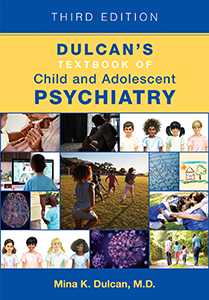Chapter 36.Mood Stabilizers
Sections
Excerpt
Lithium was used more than 50 years ago to treat “manic-depressive” illness in children (Annell 1969). Since then, a variety of potentially mood-stabilizing agents have been used to treat psychiatric disorders in children and adolescents. Mood stabilizers can be divided into the older, traditional agents, including lithium, valproate, and carbamazepine, and the newer agents, including the anticonvulsants oxcarbazepine, lamotrigine, gabapentin, pregabalin, and topiramate (López-Muñoz et al. 2018). The use of anticonvulsants migrated from pediatric neurology to child psychiatry after clinicians noticed their mood and behavioral effects.
Access content
To read the fulltext, please use one of the options below to sign in or purchase access.- Personal login
- Institutional Login
- Sign in via OpenAthens
- Register for access
-
Please login/register if you wish to pair your device and check access availability.
Not a subscriber?
PsychiatryOnline subscription options offer access to the DSM-5 library, books, journals, CME, and patient resources. This all-in-one virtual library provides psychiatrists and mental health professionals with key resources for diagnosis, treatment, research, and professional development.
Need more help? PsychiatryOnline Customer Service may be reached by emailing [email protected] or by calling 800-368-5777 (in the U.S.) or 703-907-7322 (outside the U.S.).



